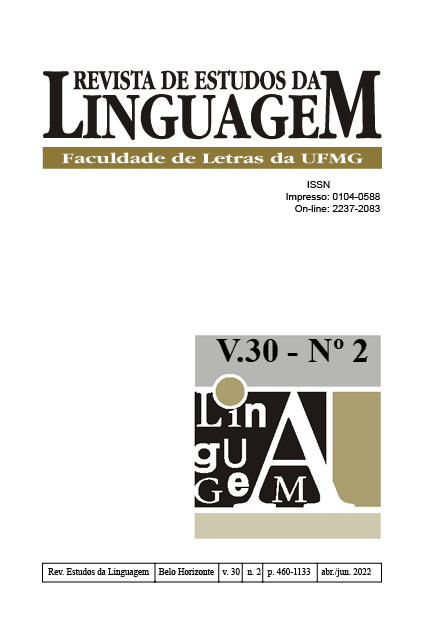A Colocação Pronominal no Português Brasileiro de Nova Iguaçu
o que os dados empíricos revelam da comparação entre fala e escrita?
DOI:
https://doi.org/10.17851/2237-2083.30.2.962-996Palabras clave:
colocação pronominal, clíticos, variação linguística, Nova IguaçuResumen
Nesta pesquisa, investiga-se o fenômeno variável da posição dos clíticos pronominais, em lexias simples, a partir de amostras de fala e escrita coletadas na cidade de Nova Iguaçu (RJ). Adotando o referencial teórico da Sociolinguística Variacionista, pretende-se determinar os fatores sociais e linguísticos que condicionam o uso da próclise em detrimento do uso da ênclise nas modalidades oral e escrita da língua, além de reconhecer quais são os elementos proclisadores tradicionais e não tradicionais mais frequentes junto ao uso da próclise. De acordo com a análise de dados, foi possível trazer as seguintes afirmações: (a) a próclise mostrou-se mais produtiva que a ênclise, principalmente em língua oral; (b) o grupo de fator tipo de elemento proclisador foi o grupo que mais influenciou a colocação pronominal nas duas modalidades da língua (oral e escrita); (c) o grupo de fator escolaridade do falante, apesar de não ter sido controlado em língua escrita, também mostrou-se relevante para a colocação pronominal; e (d) alguns outros fatores linguísticos mostraram-se relevantes, no entanto, de forma divergente nos dados de fala e escrita, mostrando que suas influências dependem do contexto linguístico em questão.





